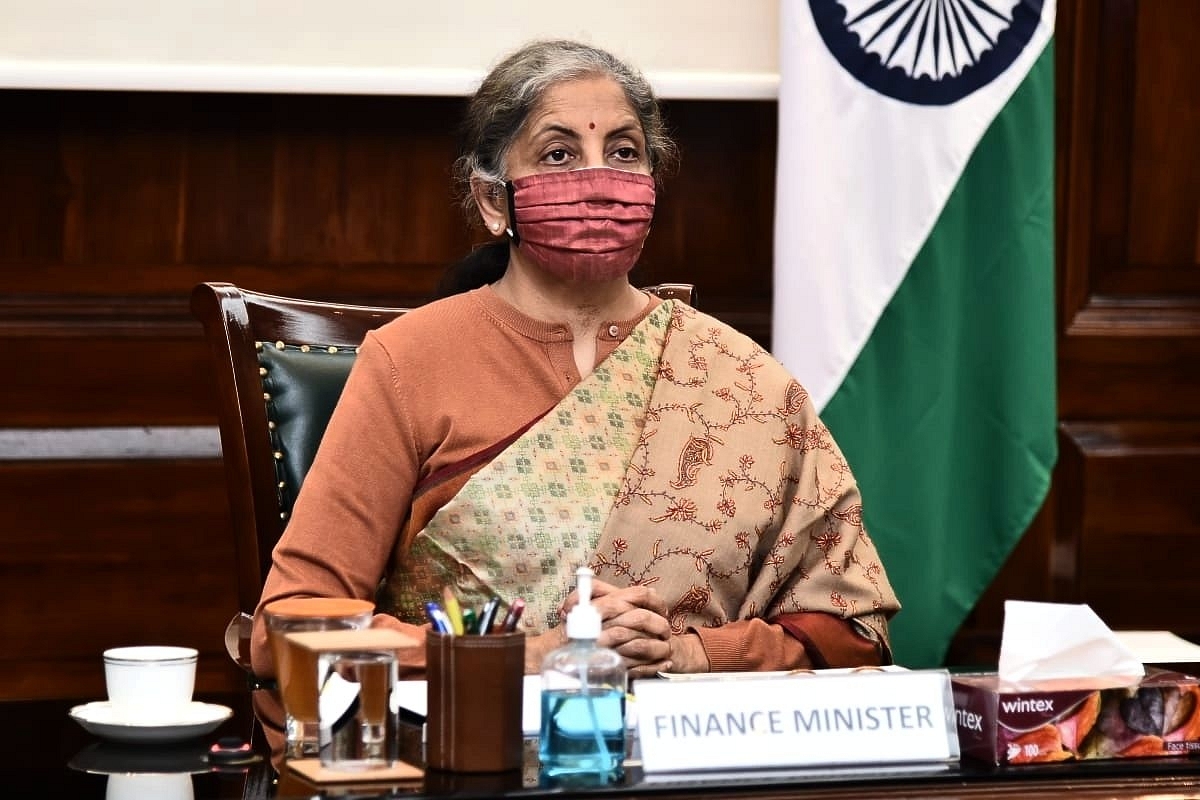News Brief
Explained: Amendments To The General Insurance Bill Passed In Lok Sabha Yesterday
- General Insurance Business (Nationalisation) Amendment Bill, 2021 amends the General Insurance Bill of 1972, which mainly seeks to remove the requirement of a minimum of 51 per cent shareholding of the government in the four subsidiary companies of the General Insurance Company.

Finance Minister Nirmala Sitharaman (Source: Twitter)
The Lok Sabha passed the General Insurance Business (Nationalisation) Amendment Bill, 2021 yesterday (2 August) amidst the continued protest and sloganeering from the opposition. The bill amends the General Insurance Bill of 1972, which had nationalised General Insurance.
The amendment mainly seeks to remove the requirement of a minimum of 51 per cent shareholding of the government in the four subsidiary companies of the General Insurance Company, which are the National Insurance Company, the New India Assurance Company, the Oriental Insurance Company Limited and the United India Insurance Company.
This bill comes in the backdrop of the disinvestment of LIC and the announcements made by the Finance Minister during the Budget where it was announced that two Public Sector Banks and one General Insurance Company would be privatised in the current financial year. At that time, it was mentioned that this would require certain legislative amendments, which would be brought about subsequently. The government till now has not announced the names of the banks or the General Insurance Company which would be privatised.
The introduction of the bill faced opposition on Friday (30 July) when leaders from the opposition stated that privatisation of General Insurance Company was not acceptable and demanded that the bill should not be introduced as the house was not in order.
The Finance Minister, Nirmala Sitharaman, responded to the opposition by stating that this bill would increase participation of Indian citizens and that General Insurance Companies could not perform well due to lack of resources and wished that house would get back to order so that proper discussion regarding the bill could take place.
Yesterday (2 August), while discussion could not take place due to disorder of the house, the Congress Member of Parliament, Adhir Ranjan Chaudhary, called the bill anti-national and anti-people legislation. The Finance Minister Sitharaman responding termed Mr Chaudhary’s remarks as baseless and that the bill would not take away the rights of anyone. She also stated that the public were the main beneficiaries of private insurance companies as they had been offering good policies with lower premiums to them and that they also had a better market penetration.
The bill also changes the definition of ‘general insurance’ to the definition of general insurance contained in the Insurance Act, 1938. This would expand the definition of general insurance to also include capital redemption and annuity. It also provides that if the government relinquishes its control over any of the companies after the passage of the bill, then the provisions of the Act would not apply to it. The government can relinquish its control over the specified insurance companies if it loses the right to appoint majority of directors to the company or gives up the power over its management and policy decisions.
Apart from the above changes, the bill also reduces the liability of the director, who is not a whole-time director of the specified insurance companies, to only those acts of commission or omission which were conducted with his knowledge.
The General Insurance Business (Nationalisation) Act of 1972 had nationalised the general insurance sector in India, amalgamating over 107 insurance companies into four companies. The recommendations of the R.N Malhotra Committee towards the end of the twentieth century sent the ball rolling for the liberalisation of this sector. The market was opened up after the passage of the Insurance Regulatory and Development Authority Act (1999) in August 2000.
Subsequently, in 2002, the four subsidiary companies were de-linked from General Insurance Company and were restructured as independent companies while General Insurance Company was converted into a re-insurer. Earlier this year, the parliament had passed the amendment to the Insurance Act of 1938, allowing 74 per cent investment by foreign investors. At present, there are over 34 general insurance companies operating in India.
Support Swarajya's 50 Ground Reports Project & Sponsor A Story
Every general election Swarajya does a 50 ground reports project.
Aimed only at serious readers and those who appreciate the nuances of political undercurrents, the project provides a sense of India's electoral landscape. As you know, these reports are produced after considerable investment of travel, time and effort on the ground.
This time too we've kicked off the project in style and have covered over 30 constituencies already. If you're someone who appreciates such work and have enjoyed our coverage please consider sponsoring a ground report for just Rs 2999 to Rs 19,999 - it goes a long way in helping us produce more quality reportage.
You can also back this project by becoming a subscriber for as little as Rs 999 - so do click on this links and choose a plan that suits you and back us.
Click below to contribute.
Latest